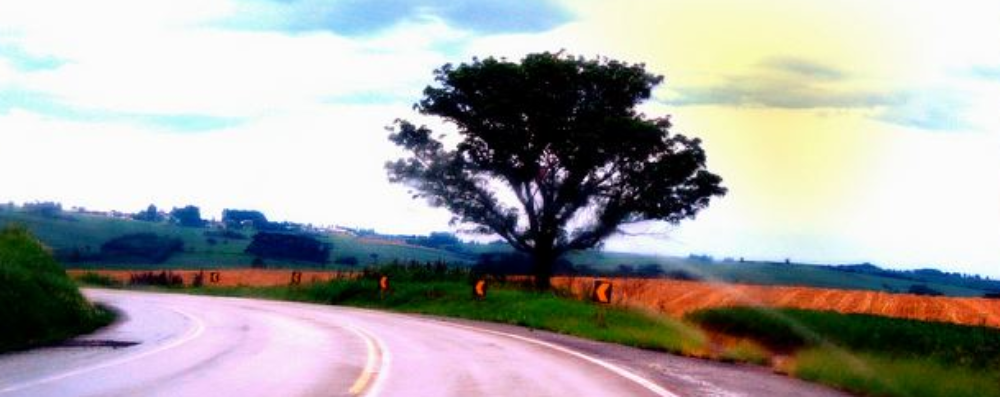
Zweisprachig Gedicht von Georg Knoll, aus Kronberg, Taunus, Deutschland, geboren am 23. September, 1861. Nach Brasilien ausgewandert, liess er sich endlich und permanent in Blumenau, Bundesland Santa Catarina, Südbrasilien, nieder.
Er arbeitet in Brasilien als Übersetzer, und übertragte brasilianische Autoren wie José de Alencar und Monteiro Lobato ins Deutsche. Beide seine Eltern in Deutschland waren Lehrer und Lehrerin.
Deutschbrasilianisch.
João, der Johann, Pedro, Peter,
gingen in das Feld, die Roça,
den Machado hat der Johann,
und die Axt hat sein Genoße.
João trägt eifrig die chaleira,
Peter hat den Topf beim Kragen;
João schleppt sich mit Pinienreisern,
Grimpas muß der Peter tragen.
Pedro geht mit der Isqueira,
Feuerzeug mit Stahl und Zunder;
João trägt andere tarecos
und der Peter andren Plunder.
Pfeife raucht der gute Peter,
Doch der João raucht Cachimbo;
Fumo raucht der Peter langsam,
Tabak raucht der João geschwinder.
Pedros Roça ist gechlagen
und der Wald längst derrubado.
Johanns Feld hat schlechte Erde;
denn das Land ist schon cançado.
Peter trinkt den Herva Mate;
denn er liebt den Chimarrão;
Tee aus Paraguay hier lutschend
sehen wir den guten João.
Milho pflantz der gute Peter,
doch den Mais den pflanzt João,
Bohnen pflanzen auch der erstre,
doch der andre pflanz feijão.
Eine Mula hat zum Reiten,
hier der Peter in der Flur,
João ist nicht so reich zu nennen;
denn er hat ein Maultier nur.
Deutsch spricht klar der gute Peter,
para ensinar die Kinder.
Weder Deutsch noch Brasilinanisch
sprecht ihr beiden Spracheschinder.
Georg Knoll
Rotermund Kalender / Anuário (1912)

Fonte:
A produção lingüística dos imigrantes alemães no Brasil
por José Luís Félix (Unesp – Assis / Brasil)
Click to access 5pNhQXIO.pdf

Bittschön, weiter vertehle
Like this:
Like Loading...




























